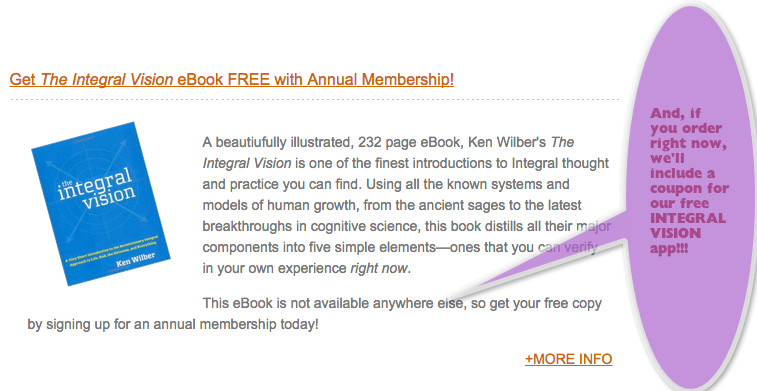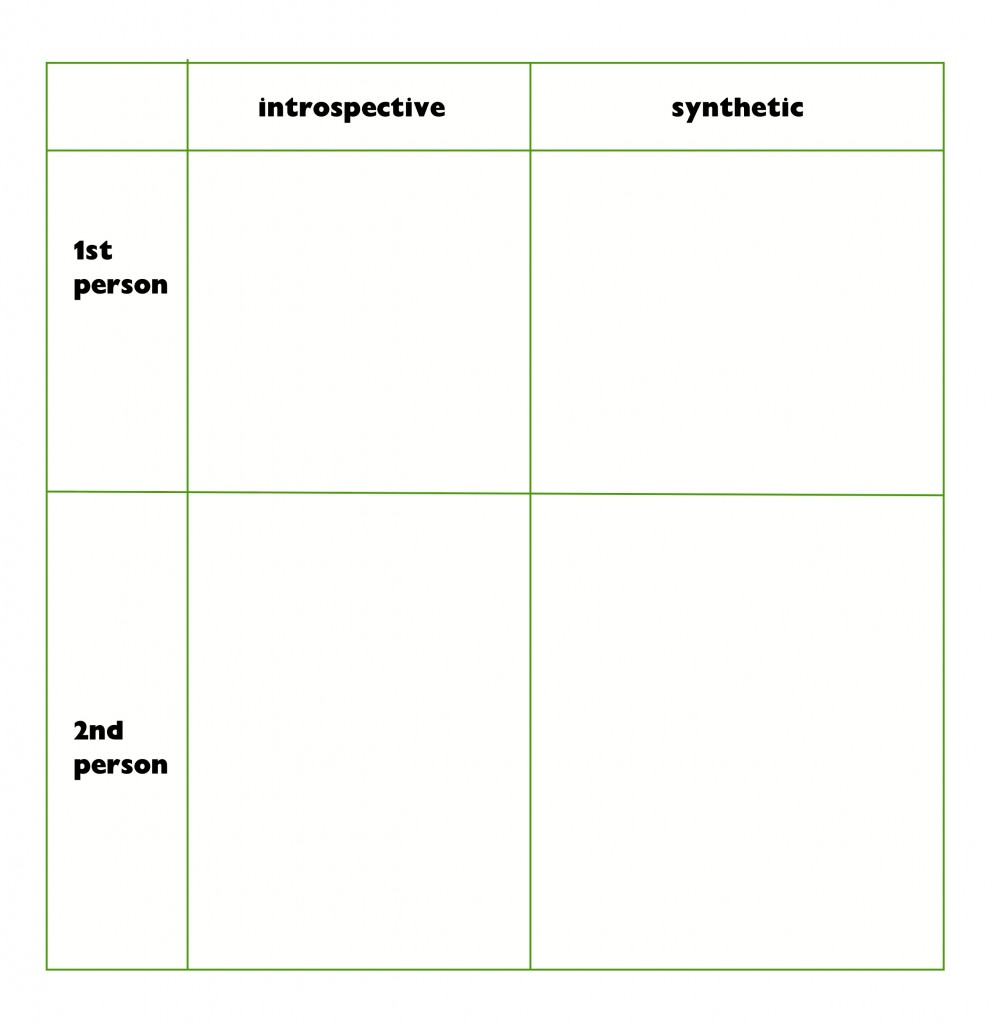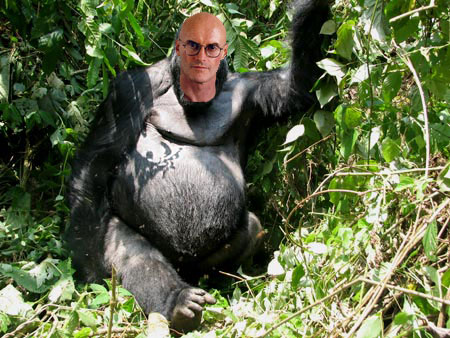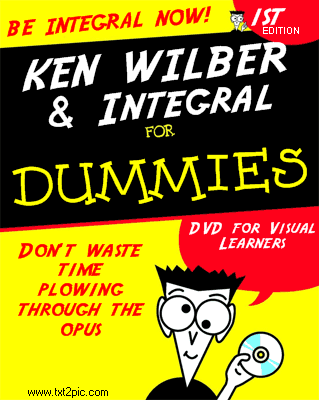[KGVID width=”640″ height=”360″]http://squareone-learning.com/blog/wp-content/uploads/Sam-Harris-solves-the-problem-1.mp4[/KGVID]
Shortly after viewing the intensely puerile tag team tussle betwixt Affleck/Kristof/Steele and Maher/Harris (on Real Time With Bill Maher, October 3rd,) I knew it would take a little while, but that I would soon get an email sent from the ramparts of the Integral Empire pointing out that the Real Time combatants just don’t get religion like the Wilberians in actuality do get it.
Sure enough, on the 18th, Dustin DiPerna weighed in on The Daily Evolver (email newsletter) with Bridging the Chasm: Sam Harris, Ben Affleck, and a Needed Dose of Integral Theory. In turn, although the link back is not available in the newsletter, Mr. DiPerna contributed a longer article to Integral World, the safehouse for heterodox views of the integral. Finally, at The Daily Evolver itself is Jeff Salzman’s article/podcast Dog and God.
Predictably, came the appeal to the integral framework’s notion of levels in the flux of person and religious system.
DiPerna: Islam, like all of our world’s great religious traditions, is enacted according to the specific levels of development of the actors involved. To be sure, Islam has a particular shape and flavor that has consistency throughout all interpretations. Folks like Harris tend to emphasize the consistent dimensions of faith, often intentionally highlighting the aspects that many consider the most challenging to stomach, as a methodology to provoke or even dismiss entire traditions as “bad ideas”. But just as each tradition has a flavor and shape itself, it is equally true that every human being has a lens and worldview that brings forth particular elements of the tradition according to the world that he or she can see. There is not one version of Islam that is either “Good” or “Bad” but there are at least five versions of Islam, all dependent upon specific levels of interpretation. Each of these levels is not arbitrary. The levels are consistent across traditions and can be correlated with very specific stages of psychological development.
Whether we use the work of Harvard researcher James Fowler’s Stages of Faith or the early models of developmental progression found in the works of Jean Gebser, we see a very similar metric that can be used to explore five basic levels of development. These levels can be referred to using the shorthand terms: magic (Stage 1), mythic (Stage 2), rational (Stage 3), pluralistic (Stage 4), and integral (Stage 5). Each level has particular characteristics and hallmarks of how it shows up in the world. Furthermore, each level has both moderate and extremist orientations.
If an interpretation is dependent, and decisively dependent upon the lens and worldview discoverable at the scale of the individual–and this is implied by religion enacted according to the specific levels of development of the actors involved–then there are as many versions of a religion at such a scale as there are actors.
This follows from DiPerna’s organic analysis that uses the blunt conceptions, via Jean Gebser, of integral analysis. A reader such as myself then can anticipate the arrival of the prescriptions.
DiPerna. Integral orientations (as with all later stages) sees the entire spectrum of growth and development. In doing so, this stage of religious orientation seeks to build bridges connecting various levels of interpretation. Understanding that everyone starts the developmental process at stage 1, this level sees the importance of building conveyor belts of potential growth and development in each tradition. Rather than merely sitting in a circle in dialogue (as the Pluralistic level might do) the integral stage combines discernment and compassion acknowledging that some views are broader, more compassionate and more inclusive than others.
In his podcast, Dog and God, Integral insider Jeff Salzman will get to this same Stage 5. (His discussion of religion in the context of stage of development begins at 11m into the podcast. download )
A reader such as myself, (having followed along with the Integral framework since 1979,) can anticipate the arrival of the prescription.
DiPerna. Rather, what is needed is the critical comprehension that individuals, with different levels of development, are enacting Islam (and all other religious traditions) according to their own worldviews and levels of development. And even more importantly, we must come to the understanding that there are paths that can be highlighted that can help individuals move along that developmental spectrum from magic, to mythic, to rational, to pluralistic, to integral versions of each tradition. As development unfolds, interpretations of faith move from being more restrictive, ego-centric and ethno-centric in view to orientations that more compassionate, open, and world-centric.
Sam Harris, transcript of the clip:
There are hundreds of millions of Muslim, who are nominal Muslims, who don’t take the faith seriously, who don’t want to kill apostates, who are horrified by ISIS, and we need to defend these people, prop them up, and let them reform Islam.
Harris’s view is obviously crude and unreal, and, for someone who spins dimes into bullion on the anti-mythic religion trail, his prescription is shockingly and shamelessly a product of his being deeply ignorant about what religions generally are about, and how religions come to change–let alone, be reformed.
Salzman’s cop from DiPerna is less crude but is no better:
Integral teacher and scholar Dustin DiPerna, also inspired by the Maher/Harris/Affleck flap, wrote a terrific essay for Integral Life on how development trumps religion.
Were Salzman, DiPerna, and Harris deep critics of their own biases, I’d have some hope for the development of better prescriptions with regard to the problem of religiosity and its variable contexts. Although, I don’t know of anybody in the post-conventional community who is so devoted to such radical solutions that he or she is willing to evangelize for free, directly to the target audience. As far as I can tell, Harris mostly preaches his degenerate prescriptions for religion to people who already have ejected themselves from religion’s clutches, or, have little experience with religion.
It would be quite remarkable for it to someday be demonstrated to be the true case that religions actually are driven to evolve in the direction promoted by the Integral idealization, an idealization itself rooted in the nowadays diffuse and defused transpersonal and noetic counter-culture of the late sixtes and early seventies. Wilber’s own philosophy soon enough came to be reactionary, constitute a logo-therapeutics, realize a messianic brand and industry, and engage a magnificently one-sided, touchy but no feely, developmental track today termed the Super Human Operating System. Could this be the inkling of the first world post-religion?
This is to suggest that those higher Integral stages are themselves geared to enlighten, but, at the same time, in the shadow of those later, higher stages, are currents strong enough to evoke the clearly promethean demiurge that supposes the point of a human life is superior development, and, this is given so as to, among many effects, trump religion, blind the religious as it were by the light of higher consciousness, bend the lower stage aspirational wills by contact with consciousness liberated from its worldly objects.
This leads to the chicken/egg problem that can bias investigation of religion. This problem is in extremis in the Integral milieu. The problem clearly comes to the surface when, for example, Harris offers a potential for reform of Islam to be caused in the crucible of ambivalence. I take this lightly to be a person speaking about changing something he is innocent of. Do we understand what the amiable endpoint of Islam will be, from being able to conjure a Fifth Stage?
I consider the Integral view on religion to be largely incapable as a hermeneutical tool. Still, it would be a remarkable coincidence if it turns out Ken Wilber has in fact discovered the optimal stages of human development, and these, as DiPerna states, have come to trump religion!
Harris? Salzman? DiPerna? Wilber? Does such a person carry close to them a criticism of their own prescription? After all, at least with all the starry-eyed advocates for centauric development, it can be presumed he or she has developed powerful tools with which to deconstruct and parse via the AQAL, and further analyze, and, process via the ironic turn, the beneficial and costly ramifications of their own prescription, and such prescriptions would be born from their own experience, biases, expertise, and ignorance.
The complexity of human and social phenomena was long ago subsumed by the abject claim, given here by DiPerna, “Integral orientations (as with all later stages) sees the entire spectrum of growth and development.” Certainly, as a social cyberneticist and Batesonian, the analytic operating methodologies for systematically evaluating spectrums of growth and development as expressed in Wilber’s own body of work is amusingly and ironically reductive, naively one-sided, rarely counter-factually argued in a very spotty literature, and, is shamelessly innocent of the apparently dull details of, to name two gigantic fields of study, psychology and religion. So, you say “entire” and I hear: gigantic.
There was a time around the turn of the century when Ken Wilber’s vision for the Integral Theory was that it needed adherents to go into the academy and become better schooled and eventually some exchange and synergy and informed evolution on both ‘sides’ might result. But, then stuff happened, and Wilber didn’t ever lead this charge. Instead, he built with help, the Integral Technologies, technologies just recently termed the Super Human OS.
Install this OS and trump really old stuff?
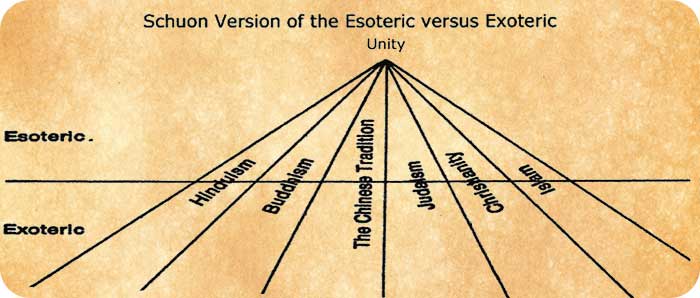
Meanwhile, neo-traditionalist, ‘not-of-the-world,’ radical Takfiri Salafism, can’t be understood to center Islam, but, those particular jihadi offshooters are on an intensely devotional mission to convert the unbeliever everywhere, or be martyred making the attempt.
I doubt a unitarian-like revolt from the fringes could make a difference, Mr. Harris.
My own prescription only has to do with what anybody might decide to do in taking initial steps for the purpose of understanding any complex human matter, such as religion, or a religion.
First, how do you identify what your tool set will be?
What are the given problems and opportunities given by where you start your investigation from?
What are the nature of your biases ?
What frameworks and tools for knowledge/sense-making are congenial or seem to carry a prospect for intrinsic motivation?
What do you need to know firstly?
Where will you start, and why start there?
How will you gather up resources and mentors?
What will be the qualitative measure of your inevitable partial understanding?
What will you not understand if you are unwilling to “do” or experience the religion?
Second, speaking very broadly, there are fields for investigation of religion, and religions. For the anthropologist, religions are largely in the local context of historical and present-day development and concrete practice at the small scale where individual, family, community practices, beliefs, representations, imperatives and prohibitions are able to be studied. How is this all to be understood to be a driver and sustainer of, or otherwise support, individual and group actions, practices, beliefs, knowledge?
For sociologist, religions are largely in the larger scale context given by how institutions and relationships between social groups come to bear upon both local practice and the organization of local practices, beliefs, representations, imperatives and prohibitions into the larger social scales, and, organizational practices and routines, of a society or well-defined group. How is this all to be understood as a driver and sustainer of institutions and their practices?
For modern historians, the development of a religion asserts how a religion came to center or otherwise instantiate crucial social impacts and changes at the scale of community or tribe or group or nation or region or continent or planet, and, at all of those scales altogether.
Psychologically or social-psychologically, the nature of religion refers to its aiding cognitive cum psychological organization of individual and intrapsychic and intersubjective and group: identity, meaningfulness, symbolic systems, inheritable interpretation of history, ethics, birth/life/death, family, theories of mind (or consciousness,) development, aspiration, and relations to the profound objects and possibilities larger than one’s own single mortal self. In a psycho-anthropology, how is this all to be understood to be a driver and sustainer of, or otherwise support, individual and group actions, practices, beliefs, knowledge?
There are also many other fields and disciplines, like philosophy of religion, plus, all the various fields possess lots of disciplinary subsets.
My gloss here is intended to sketch lots of choices, showcase complexity. Also, this gloss supposes all sorts of tacit relations and subject matters between the disciplinary fields. Obviously, I recognize my own investigations are at the level of what is called the ‘folk,’ and so I also recognize whatever I do happen to know is more lightly disciplined and more subject to error than that of most masterful experts.
As far as I know, most of the thrust of Integral investigators is inexpert too. There is to my knowledge not a single deeply informed integral treatment on the subject of religion, (or on any other subject for that matter!)
I sense the deep irony unintentionally embedded in the various Integral prescriptions.
It is clear to me that even if the post-religion implicit in the higher stages of Integral development drives the good will of those who urge upon Islam reform for the sake of Islam evolving to become trumped by the Integral (!), the various Integral self-proclaimed scholars do not yet seem to me to be at all conversant with religion as a social scientific object of study, let alone conversant with Islam proper.
As for Bill Maher, I enjoy his New Rules, but he is, in the main, an asshat and charlatan.



